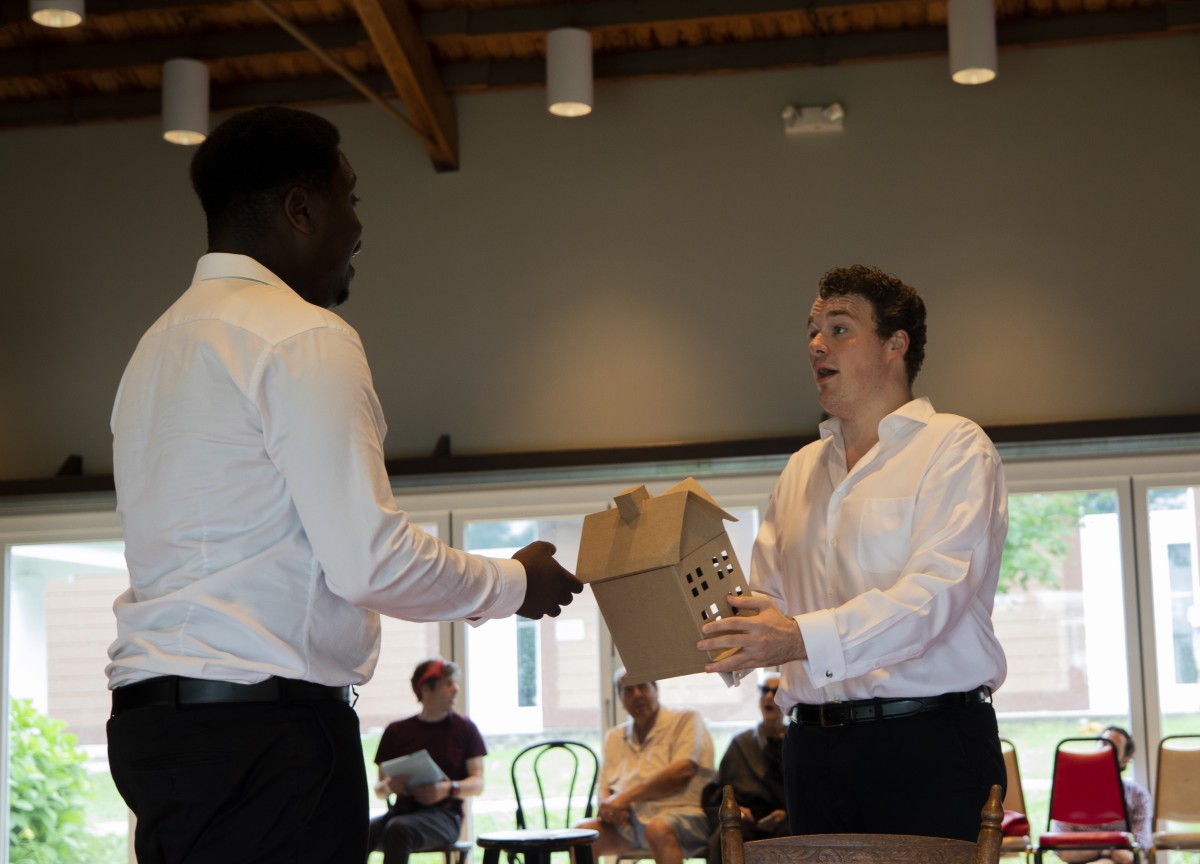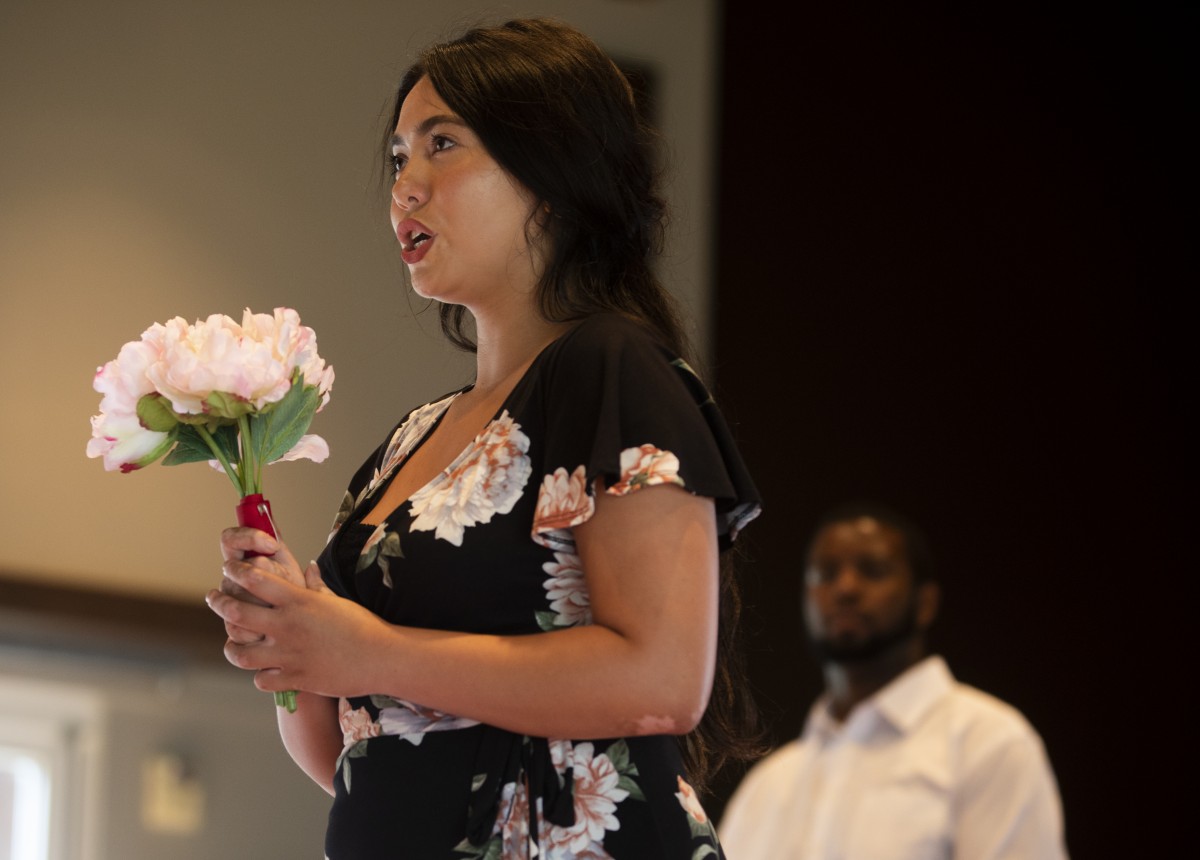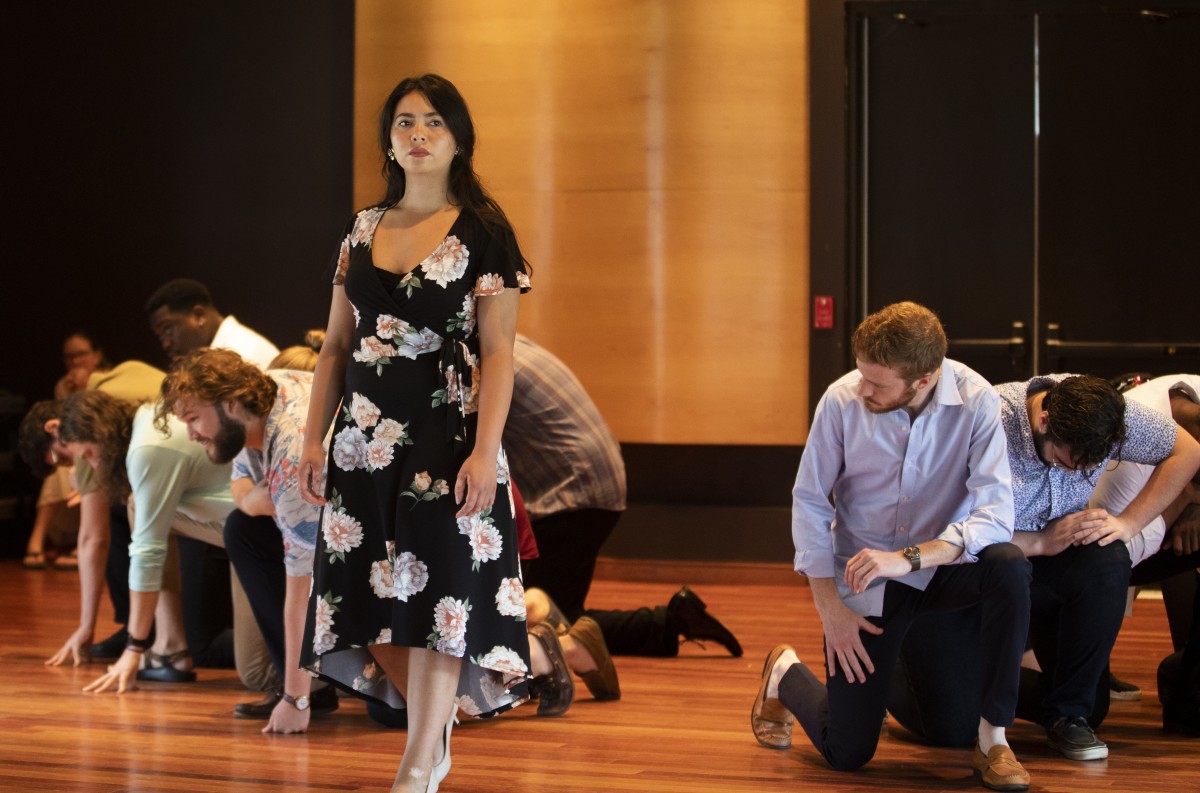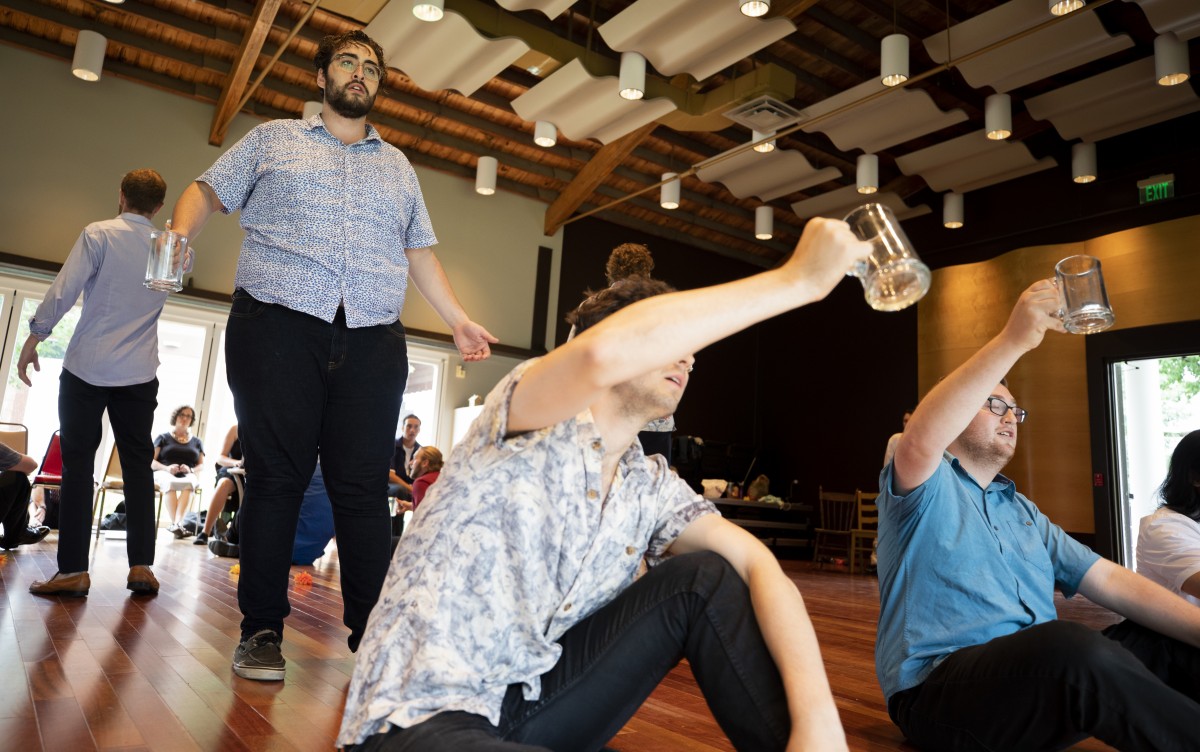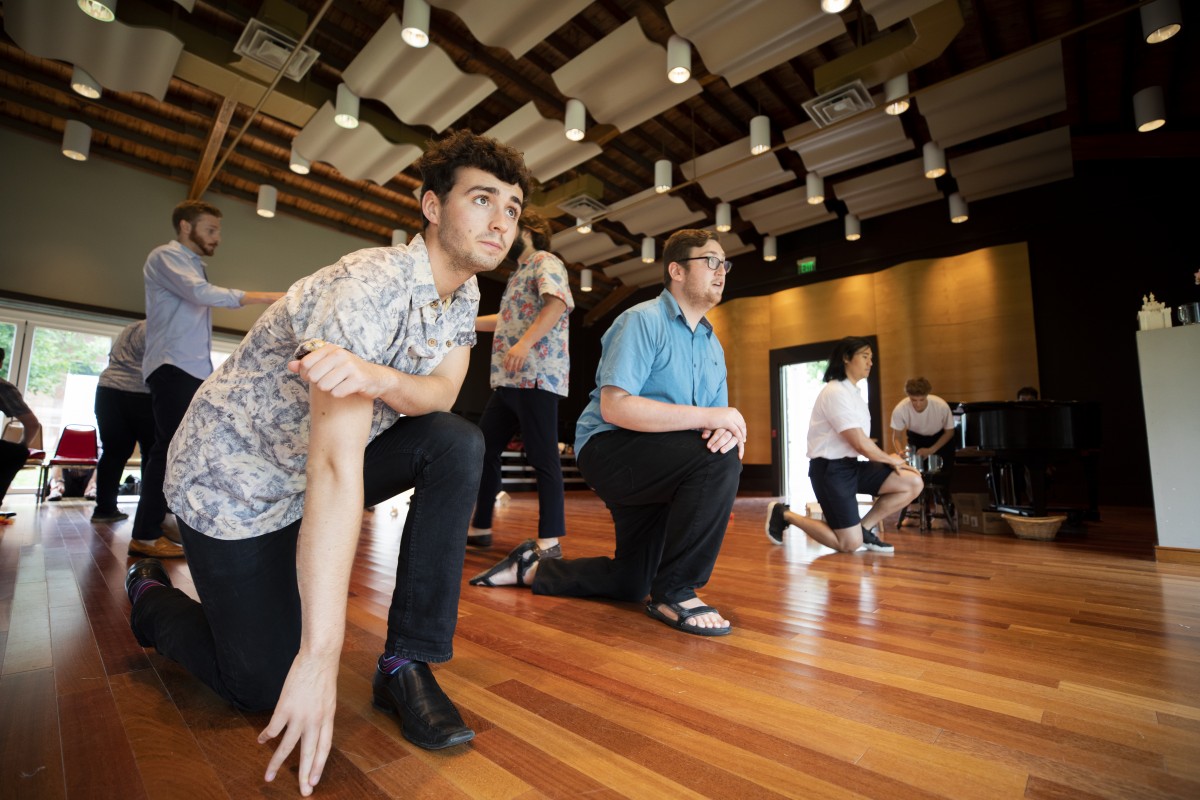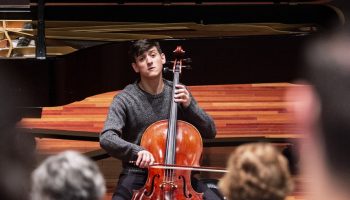The operetta The Student Prince tells a fairytale story, with music by Sigmund Romberg and book and lyrics by Dorothy Donnelly. It has a long history: It is based on Wilhelm Meyer-Förster’s play Old Heidelberg. There is also a 1927 silent film, The Student Prince, directed by Ernst Lubitsch and a 1954 musical film, “The Student Prince,” directed by Richard Thorpe, starring Ann Blyth, Edmund Purdom and Mario Lanza.
In 2018, voice students at Chautauqua will give two performances of the production, directed by Mikhaela Mahony with two casts, at 6 p.m. Wednesday, August 8, and Thursday in McKnight Hall.
According to Mahony, her production of The Student Prince is a collage of pieces taken from the operetta, the 1927 silent film and the 1954 musical film, though this production is largely based on the operetta. The performances will feature some songs from the 1954 film and two songs written by composer Nicholas Brodszky: “Beloved” and “I’ll Walk with God.”
According to Voice Chair Marlena Malas, the tunes in The Student Prince are “very lovely,” and the operetta itself is accessible because it is in English, and “everybody responds to it.”
Mahony said when she was doing research on The Student Prince, she “fell in love” with the difference pieces and elements in the different versions. She thinks her approach resembles human nature.
“For me, I believe that we are all kind of a collage.
… As humans, we are bits and pieces from the books we read or the people we know,” Mahony said. “And that’s how we are built. We are built out of these different versions of ourselves.”
According to Mahony, The Student Prince is very much a piece about “people trying to find out who they are based on the different contexts they are in.”
“Is a prince a prince when he’s at school with people who just treat him as a person? Or can he change his persona?” Mahony said. “Can he become a different version of himself?”
The Student Prince is about Prince Karl Franz who had a very lonely childhood in a castle in Karlsburg with his grandfather, the king, according to Sebastian Armendariz, who will voice the Prince in the Thursday production.
“The beginning of his life (is) cold and lonely. … Karl Franz grows up believing that no one can see him, that he’s invisible, because all the guards that are around him never pay any attention to him,” Armendariz said. “And they won’t allow him to play with the other kids that he sees playing outside of his castle windows.”
Armendariz said the Prince is later sent away to study in Heidelberg, where he has a happy time making friends and finding romance, falling in love with fellow classmate, Cathie.
For both Mahony and Armendariz, convincingly showing the changes in the Prince’s two different lives is challenging. Mahony said she needs to think about how to transform McKnight Hall “both into this rigid, bureaucratic, Karlsburg space, and then into this free, beautiful, Heidelberg space.”
“McKnight is such an exciting space because it feels kind of magical in there. I think it does,” Mahony said. “We open up all the windows; we push the seats back; you can sit outside. And the performers enter from outside, and they sort of surround the audience.” Armendariz said showing the change in the Prince is a challenge for the actors playing the role and also is “what makes (playing the Prince) so enjoyable” for him.
Armendariz said the audience gets to witness how the characters’ demeanors, the acting, and reactions change. Once the audience gets used to the time period and setting in Heidelberg, everything changes.
“And then, of course … everything switches around,” Armendariz said. “What causes (this change) is the prince’s grandfather, the king, becomes very ill, and ends up passing away, so I have to go back to Karlsburg, leave Heidelberg at the height of my romance with Cathie and assume the responsibilities of being the king.”
Mahony said the plot of The Student Prince is “very sad at times,” but also fun and exuberant.
Armendariz said the story gets sad for two reasons.
“(First, the) romance between Cathie and the Prince is always doomed,” Armendariz said, because Cathie is a bartender, not a princess.
“Even though they fell in love with each other quite quickly, and it’s a real, genuine love, they both know pretty much from the beginning that they would never be,” Armendariz said. “Despite that, they continue to seek it out, continue to develop the relationship.”
Armendariz said the message in The Student Prince “reads very well” in 2018, when monarchies are considered old-fashioned. In many present-day fantasies, the protagonists tend to “be more faithful to love than” their duties as royalty.
“(People might say), ‘Just throw it away, just go with the person you love’ — (which is) the general aesthetic of what people nowadays would want,” Armendariz said. “And (The Student Prince) takes you back to a time and a place where that didn’t happen much, where the duty to your family or to your kingdom was incredibly binding.”
In addition to the Prince’s duty to rule his kingdom, there are also the issues of distance and the lack of technology, according to Armendariz.
“The Prince and Cathie aren’t Snapchatting. They are not text messaging. They have no way to communicate with each other unless they are face-to-face, even though there is a post service,” Armendariz said. “When the Prince goes back to Karlsburg, he has to run an entire kingdom. Even though he promises to write to Cathie, he doesn’t have the time to do all that, as he is assuming his throne.”
Armendariz said if the story were in present day, the Prince and Cathie could keep in touch more easily.
Mahony said she frequently talks about the idea of “nostalgia and how to acknowledge the dreams of youth” to the casts during stagings and rehearsals. But also, she said, it’s important “not to get stuck in those dreams, but appreciate the life in front of you and the beauty of growing old.”
“To the end, we have created a fairytale framework for the piece,” Mahony said.
Armendariz said he wants the audience members to remember the first time they fell in love and to “be transported back to” that moment.
“If that happens, I’ll be happy,” Armendariz said. “Even one audience member — I’ll be happy.”


